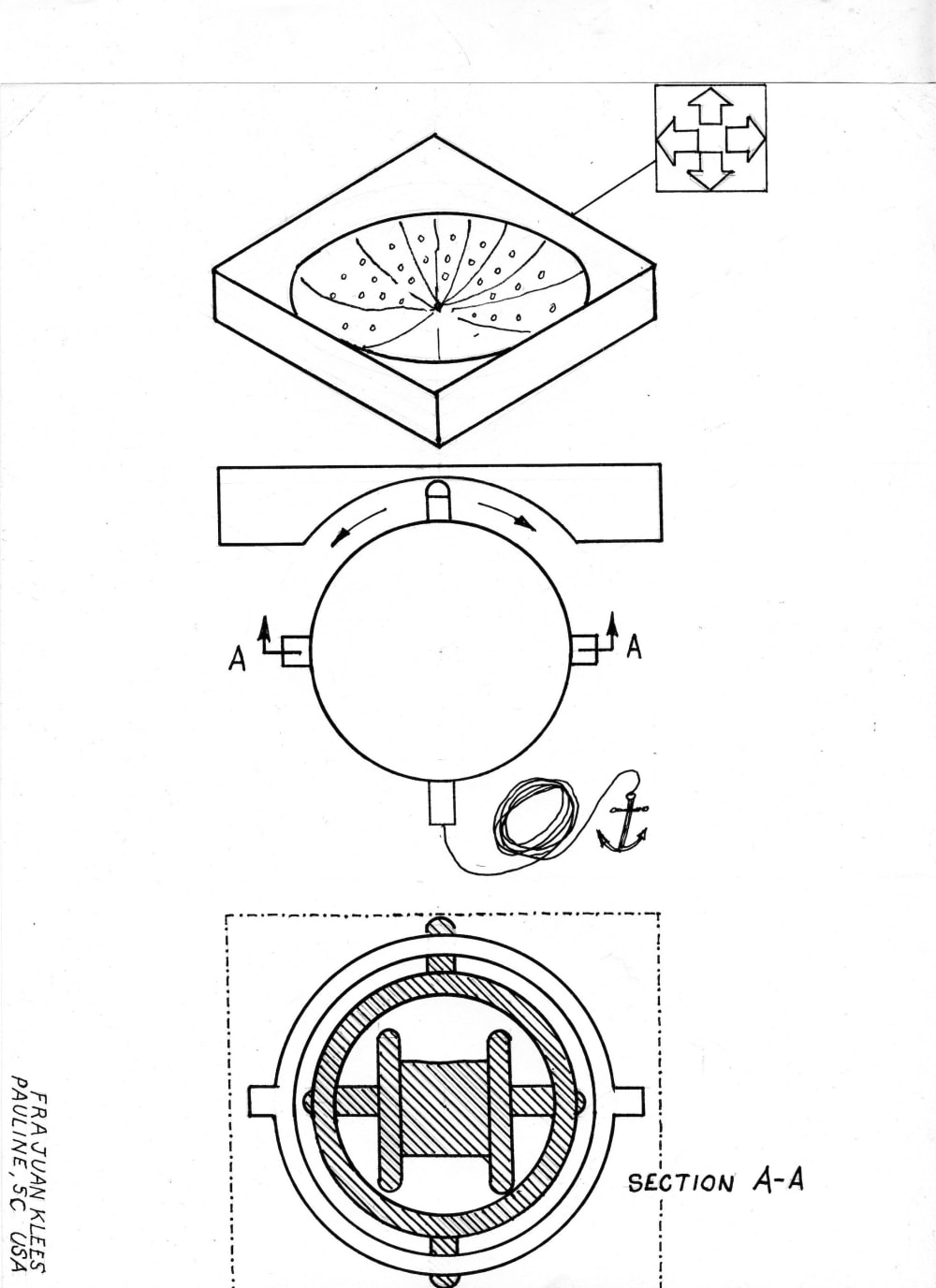Aircraft and other vehicles are out of control. The loss of property and lives is very costly. Why do drivers pull out at a stop sign into the paths of motorcyclists? How can a person unwittingly crash into a brick wall with their foot on the accelerator? Why would a person who collides into the side of a vehicle claim that they were hit, not the other way around? Why do highly trained military pilots lose control of helicopters (1979 Iran)? If it is plausible that non-perceptible motion is occurring, no one would know it for two reasons. At near zero values, our instruments are useless. Since managing the velocity and direction of vehicles at this limit is not being done at the present time, it would require a means to detect velocity and direction at near zero values.
This invention consists of a sheave mounted in a gimbals assembly to hold a rope used as a tether. Fixed to a point on the Earth by a weight, or some other means, and kept taut on the sheave by an electrical motor, a point on the assembly in contact with an electronic assembly would indicate initial and subsequent positions. Knowing the length, angle and position of the contactor, a programmable computer could detect motion of a vehicle. Internally, it would be a measure of feet/second, although it would only be necessary to indicate direction with suitable lights/bells and arrows/whistles. If required, a means could be provided to feedback at a set parameter, or auto-pilot function.
After all these years, four in art school at MIAD, and seventeen years behind the wheel of commercial vehicles, more than three million miles, I want to thank Zeno, Einstein, and many others, for what I refer to here as “relative motion of frames of reference confusion.” It came very late. But my goal to explain how non-perceptible motion is responsible for inestimable loss of life and property damage finally became clear. Taking a 'limit' on motion of vehicles in this way has never been done. It should have been. If no one can think of a better word, I suggest the word “zenostasis” to describe this perceptual problem (which is a collection of relative motion problems incl. vection, etc).
Like this entry?
-
About the Entrant
- Name:Fra Juan Klees
- Type of entry:individual
- Patent status:none

